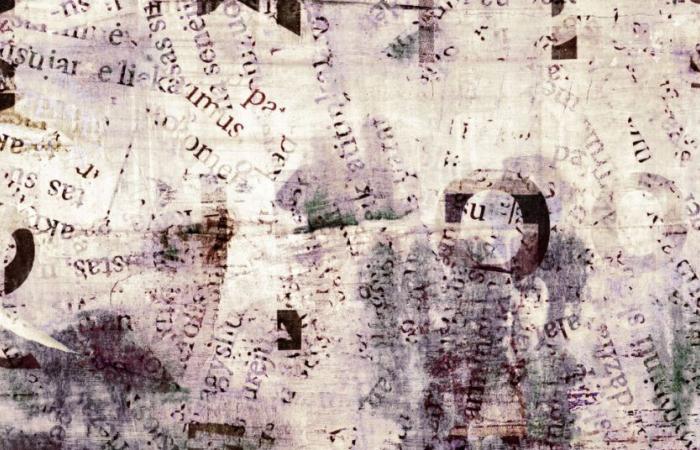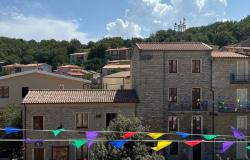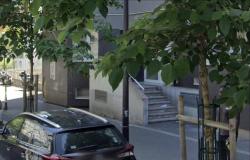The French Academy has just published the last volume from the ninth edition of his famous dictionary, started in the 1980s. The previous one dated from 1935. This very recent edition is already criticized, as the Academy seems indifferent to the bustling life of the French language. But can she do otherwise? The analysis ofOctave Larmagnac-Matheron.
Is it really reasonable that writing a dictionary takes several decades? Languages evolve so quickly that it seems futile to try to keep up with them. He is a poet, Ponce-Denis Écouchard-Lebrun (1729-1807), himself an academician, who said: “We make, undo, redo this beautiful Dictionary / Which is always very well done, will always be done. » As for the philosopher Barbara Cassinshe has also become immortal, she assumes it: “A language, as we have considered it, is not a fact of nature, an object, but an effect taken from history and culture, and which never ceases to be invented […] So much so that the object of the dictionary is constituted by languages in their works”she wrote in her Dictionary of untranslatables (Editions du Seuil 2004).
The impossible dictionary
The dictionary, still in the making, is therefore an unrealizable fantasy. But he cannot help but fix, for a time at least, the life of words. It integrates change in a static form. We can clearly see the tension: the dictionary freezes the language at a moment in its own history, but this language continues to evolve. The dictionary has a conservative, fixed character, at the same time as a dynamic dimension, because each version of the dictionary maps a new state of the language. The two poles coexist in him. Roland Barthes thus put the dictionary in tension like a “robust object”but animated by a vitality “burning” :
“What's more reasonable than a dictionary? He informs, he educates, he even teaches […] Now this robust object, simplistic even if we think of the tangle of facts, notions, substances of which the world is made, engages without saying it the most serious, the most burning problemss […] The first concerns the infinitude of the words of a language. No one knows how many words the French language is made of. The language changes from minute to minute, from place to place, according to the countless words that are spoken; sometimes a new word spreads, spreads, “takes” […] The dictionary constantly struggles with time and space (social, regional, cultural); but he is always defeated; life is always wider, faster, it overflows, not language, but its codification. This is why new dictionaries are constantly needed.”
Roland Barthes, preface to Hachette Dictionary. Language, encyclopedia, proper names1980
The temptation of conservatism
This announced defeat does not prevent conservative tendencies from asserting themselves very strongly in dictionary practice. To the permanent movement of language, the rigorous academicians oppose the seriousness of stability. Past usage becomes the norm of the future. The rules, the well-ordered norms aim to tame the anarchy of becoming. The dictionary then takes on a solemn character on purpose. “To appear, a dictionary must first appear serious: you cannot impose yourself without imposing”said the writer ironically Georges Elgozy In The Spirit of Words or the Antidictionary (1981).
The Academy is frequently accused of defending this conservatism. This is true of the last volume of his dictionary: with only 53,000 words and definitions deemed obsoletedifficult to make of it a tool for capturing the life of the language. Rivarol gently mocked this discrepancy: “In the Academy dictionary, we do not find what we do not know; but we don't find there what we know. » Neither new words whose meaning we would like to know, nor the meaning of words as we handle them in the present. Alain Reyeditor-in-chief of Robert, opposed the overly conservative approaches of the dictionary :
“We are morally and ethically obliged to define new words even if they do not please. […] The dictionary is an observatory, not a conservatory. […] When the term 'selfie' comes up in millions of occurrences, we can't pretend it doesn't exist. Our criterion is therefore the frequency of use, but below a certain threshold, there are ideological choices that are made, around the importance of the concept. The dictionary does not have the right to miss certain terms”
Alain Rey, interview given to Sunday Newspaper the 22nd of 2015
A dilation of time
Let's not be unfair: the Academy's dictionary includes change well. However, it integrates it on an excessively dilated time scale. Paul Morand already mocked this stretch: “When the Academy Dictionary comes to the word Virtue, I will no longer be in this world. » This dictionary does not show the state of the language at a given moment; some entries were composed many years, even decades, before others much more recent. It is therefore difficult, if not impossible, to say which language we are dealing with. However, this is also the function of a dictionary: not only to define a set of terms, but to show the momentary intertwining of words which do not exist independently of each other but constantly refer to each other. Lexical novelties are not just added complements; they constantly redistribute and reorganize the entire language system. These are the same words, taken from an evolving system of references, that the dictionary defines and which are used to define. The stretched dictionary of the Academy, on the contrary, inevitably interweaves different temporalities, different states of language, without this mixture being clearly perceptible since all the definitions are presented in a common present. The linguist Laélia Véron pointed out this shift on X: “The main problem with the dictionary is that it is inconsistent. Logic: when you make a dictionary over 90 years, no one can supervise the project with the same editorial line, the letter A was made 50 years apart from the letter M.”
The depth of archaism
Does this mean that past states of language have no place in a dictionary? Probably not. The etymology, indicated as such, has a place in the dictionary, as do indications such as “aged”, “obsolete”, etc. The Academy itself fortunately uses this type of clarification. Thus, the email in its sense of “small cylindrical mass of wood, attached to a long handle” is preceded by a useful good “formerly”. But “formerly” always presupposes a given temporal referent. What was an old use three decades ago is not necessarily what is old today: new meanings become archaic, others sometimes find a second life. Thus, the definition of “guy” (“Recognized man in the underworld world. Sometimes refers to the pimp of’a prostitute »): the word, in this sense, the only one mentioned, is considered “slang”, but not ancient.
These layers of time that cross the language are part of the charm of this dictionary. As Barthes pointed out, « c’is a dream machine; s’generating, so to speak, itself from word to word, it ends up merging with the power of the imagination.. The semiotician thus invites us to derive from words to words, between “continents, eras, men, tools, all the accidents of nature and society”. And he concludes: “It seems that there are certain worn-out words in dictionaries that are waiting for a great writer to appear to take up all their energy. » The history of words, which never ceases to haunt their meaning, is a precious reservoir of reverie. This is also, undoubtedly, the role of a dictionary: not to freeze the time of the language in a normative past, but to make people feel this spread which makes up the depth of language.






